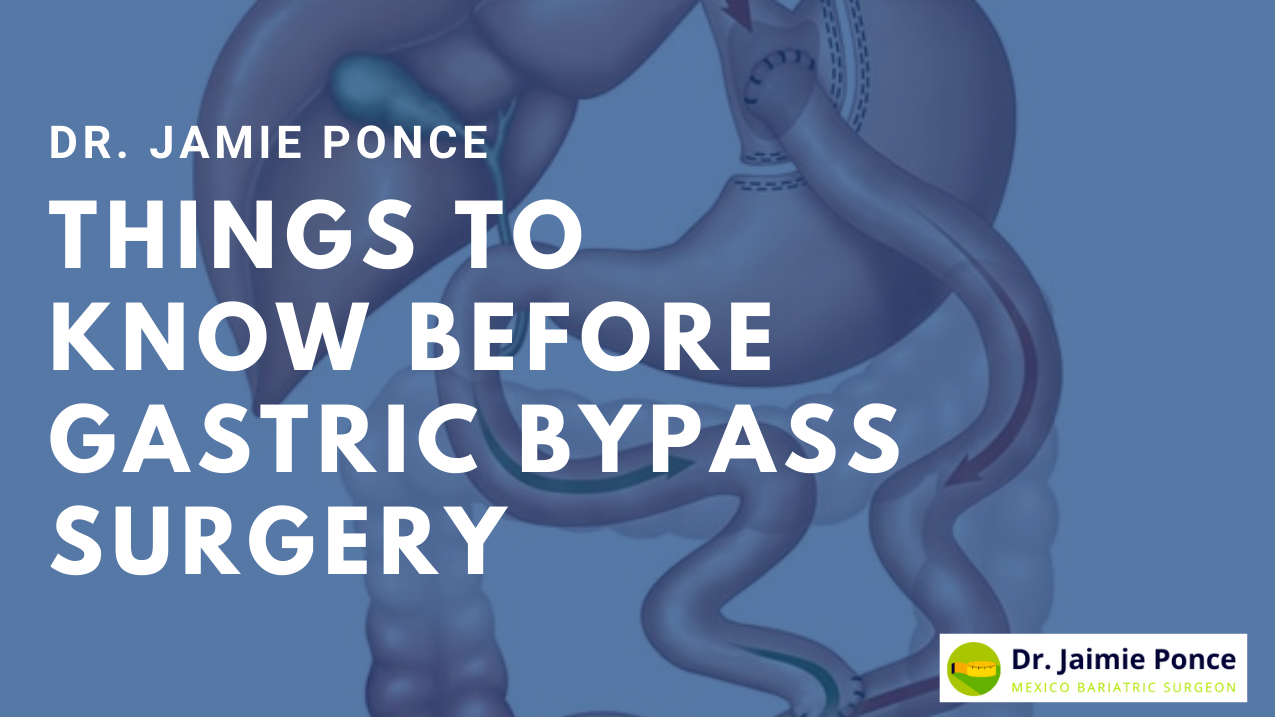
It’s important to consider many things before choosing to have gastric bypass surgery. This requires great consideration as well as a lifelong commitment to change. Take time to understand the surgery itself, the benefits of having it, the risks and complications associated with it as well as what to expect following surgery. Here are some of the most commonly asked questions associated with Gastric Bypass.
Back to: Gastric Bypass Surgery in Tijuana, Mexico
What is Gastric Bypass surgery?
This weight loss surgery type alters the digestion process by limiting or restricting the amount of food that the stomach can ingest as well as limit the absorption of food. The stomach is typically divided into a small portion and stapled in order to create a pouch. The new pouch is disconnected from a portion of the intestine and then reconnected to another portion of the intestine further down the tract. This helps to allow food to pass from the stomach into the lower part of the intestine. This combined promotes weight loss.
What are some advantages of having Gastric Bypass versus other surgery types?
Gastric bypass is known to cause extreme weight loss as well as improve many health conditions including Type II Diabetes, arthritis, high blood pressure, and sleep apnea.
Is the surgery reversible?
Gastric bypass surgery is considered a permanent solution; however, it can be reversible because of medical problems such as blockage or leakage.
Who is a good candidate for Gastric Bypass surgery?
A person who has failed at losing weight in the traditional way and has a BMI of over 40 or between 35 and 40 with a comorbidity is a great candidate. Preliminary tests must be done before surgery to determine if the procedure is safe for the patient.
Who is Gastric Bypass not recommended for?
Those over 55 years old with medical conditions such as heart disease, Type II Diabetes or high blood pressure are not good candidates for gastric bypass surgery.
What are some risks and complications associated with Gastric Bypass?
Some risks associated with bariatric surgery include vitamin deficiencies, port or wound infection, incision hernias, intestinal leaks, and acute stoma obstructions. The Mayo Clinic reports that lung problems, dumping syndrome, gallstones, low blood sugar, ulcers, nausea and vomiting, and malnutrition all may occur (as well as other symptoms). However, these are all rare occurrences.
Will my insurance cover Gastric Bypass surgery?
Typically insurance companies will determine if weight loss surgery, whether gastric bypass or any other, can be covered if someone has attempted to lose weight in the traditional way and also has obesity-related medical conditions (comorbidities).
What tests are done before Gastric Bypass surgery?
Some common tests done before surgery include an abdominal ultrasound, blood tests including blood urea nitrogen, creatinine, cortisol, and a complete blood count, a colonoscopy, a chest x-ray, echocardiogram, EKG, mammogram, pap smear, pelvic ultrasound, sleep study, stress test or pulmonary function tests all may be done. A patient must be cleared by a cardiologist, pulmonologist, dietician, and psychiatrist to have gastric bypass surgery.
How much weight can I plan to lose with Gastric Bypass?
Patients can expect to lose anywhere from 50-80% of their excess weight with proper diet and exercise. Many gastric bypass patients have lost the most weight within one to two years following their surgery and maintain the most weight loss over a long period of time after that.
What will my diet be like after surgery?
There are four phases to the gastric bypass diet. First, a patient will have liquids for the first few days following surgery. Next pureed foods will be introduced for two to four weeks. Next soft solid foods are introduced for about eight weeks. Lastly, solid foods are introduced to the tract. Foods such as popcorn, granola, rice, nuts, seeds, bread, and tough meats are not recommended.
How long will I be in the hospital?
Patients can expect to stay in the hospital for three to five days following gastric bypass surgery. A patient can go home when they can eat liquid food without vomiting, can move around without extreme pain, and no longer need IV pain medication anymore.
Will I need to take more vitamins after surgery?
Gastric Bypass patients require a calcium supplement with Vitamin D, a multivitamin (sometimes twice daily), an iron pill, and Vitamin B12 (whether orally or by injection).
REFERENCES:
http://www.uchospitals.edu/specialties/general-surgery/obesity/faq.html#P24_1189
http://www.uwhealth.org/weight-loss-surgery/bariatric-surgery-FAQ/10415
http://www.med.umich.edu/bariatricsurgery/learn/faq.shtml
http://www.nlm.nih.gov/medlineplus/ency/article/007199.htm
http://www.mayoclinic.com/health/gastric-bypass/MY00825/DSECTION=risks
http://www.npr.org/templates/story/story.php?storyId=5658690
http://www.webmd.com/diet/weight-loss-surgery/what-is-gastric-bypass-surgery
